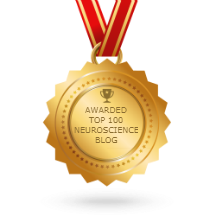-
30
Aug
In 2004, Ian McDonald, M.D., a British neurologist and amateur classical pianist, experienced a stroke that damaged a fairly small area of his brain. As a result, he temporarily lost his ability to read and play music from a score, as well as to appreciate music emotionally.
By Petr Janata, Ph.D.
Originally posted to Cerebrum @ Dana Foundation, August 2007

What does his experience, and that of other people whose musical abilities have been affected by brain damage, teach us about how the brain binds together what we perceive into a seamless flow?
Read the full article here
Article References
1. McDonald, I. Musical Alexia with Recovery: A Personal Account. Brain 2006; 129: 2554–2561.
2. Schön, D, Semenza, C, and Denes, G. Naming of Musical Notes: A Selective Deficit in One Musical Clef. Cortex 2001; 37(3): 407–421.
3. Bevan, A, Robinson, G, Butterworth, B, and Cipolotti, L. To Play “B” but Not to Say “B”: Selective Loss of Letter Names. Neurocase 2003; 9(2): 118–128.
4. Schön, D, Anton, JL, Roth, M, and Besson, M. An fMRI Study of Music Sight-Reading. Neuroreport 2002; 13(17): 2285–2289.
5. Sergent, J, Zuck, E, Terriah, S, and Macdonald, B. Distributed Neural Network Underlying Musical Sight-Reading and Keyboard Performance. Science 1992; 257(5066): 106–109.
6. Raichle, ME, and Gusnard, DA. Intrinsic Brain Activity Sets the Stage for Expression of Motivated Behavior. Journal of Comparative Neurology 2005; 493(1): 167–176.
- Published by Dimitrios A. Adamos in: Stories
- RSS feed subscription!

 Neurobot via RSS
Neurobot via RSS
